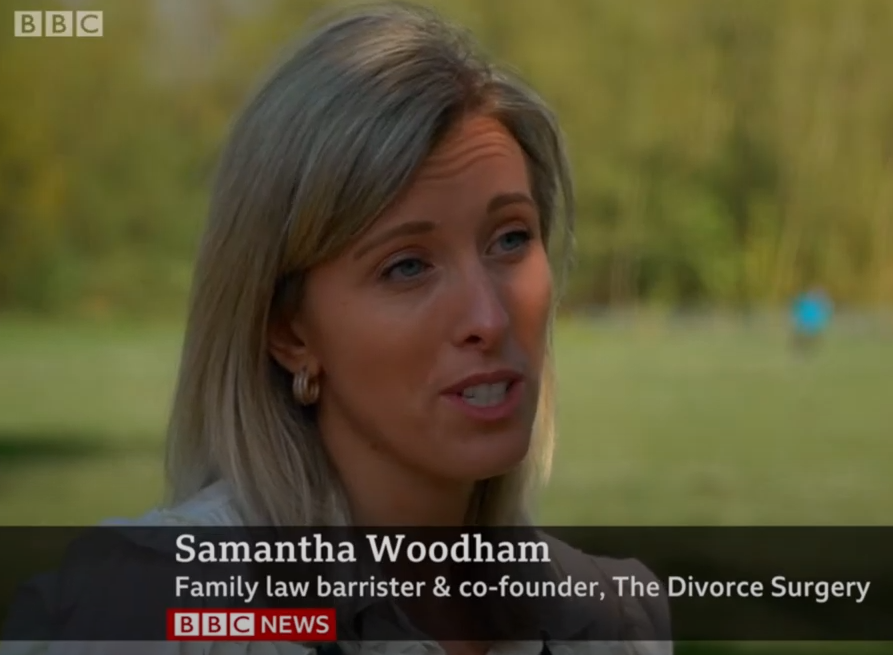Knowledge Hub
Join the Conversation!
Impartial and independent, ThoughtLeaders4 HNW Divorce Knowledge Hub hosts cutting edge industry content and insight.
Email maddi@thoughtleaders4.com to submit content.
Should Children be Moving between their Parents’ Homes during the Coronavirus?
Date: 24/04/2020 Type: Articles Topic: HNW Divorce | Modern Family |Living through the Coronavirus creates a heightened sense of stress and anxiety for us all. Decisions that used to require no thought at all are now, for many of us, very fraught: Should I go to the supermarket? How should I take my daily exercise? Do we have enough food this week? How can I support my elderly relatives? It is an extremely challenging time.
For couples who are separated, or are in the process of separating, there is an added layer of stress. At The Divorce Surgery we are trying, as much as we can, to provide much needed information to couples at this time. We have already published a blog on what steps couples can take, even now, in preparing to agree the division of their finances. This week we are focussing on child arrangements.
Our co-founder, Samantha Woodham, was on BBC News this week speaking about child arrangements during Covid 19. Although there is guidance available for separated parents, it is clear that many are unaware of it, or if they are aware, are unclear as to how exactly it applies to them.
It appears this is disproportionately affecting our front line workers, some of whom are not only battling the Coronavirus each day to protect us all, but are then going home and facing private battles to see their children.
At The Divorce Surgery our core belief is that separating couples need to be expertly and reliably informed. Once you have clear information as to what a Judge would do in your circumstances and what is expected of you, you can reach a fair agreement, in relation to your children or your finances.
So What Does The Current Guidance Say?
There are three key sources of guidance:
The Government guidance makes it clear that one of the reasons you can leave home is to provide care for another person, and this includes children under 18 moving between their parents’ homes (provided no one is isolating).
The Cafcass Guidance which provides that ‘Unless there are justified medical/self-isolation issues – or some future nationally issued guidance or expectation associated with leaving the house in your area – children should also maintain their usual routine of spending time with each of their parents. If there is a Child Arrangements Order in place this should be complied with unless to do so would put your child, or others at risk. This will help your child to feel a sense of consistency, whilst also reassuring them that the parent they don’t always live with is safe and healthy.’ The Guidance goes on to confirm that transporting children between homes will usually be a legitimate journey.
The President of the Family Division’s Guidance which provides that ‘The decision whether a child is to move between parental homes is for the child’s parents to make after a sensible assessment of the circumstances, including the child’s present health, the risk of infection and the presence of any recognised vulnerable individuals in one household or the other. Parents are urged to communicate and reach agreement, and that ‘where Coronavirus restrictions cause the letter of a court order to be varied, the spirit of the order should nevertheless be delivered by making safe alternative arrangements for the child.’
Where Is The Confusion?
The difficulty is probably caused by the fact that the guidance, taken as a whole, is permissive rather than directive. It is telling parents that children can move between homes but not that they must. And in circumstances where some separated parents have very high levels of mistrust for each other, it can be extremely difficult for them to reach any form of agreement as to whether child arrangements in these exceptional circumstances we find ourselves in should be varied or not.
Unfortunately, some parents are interpreting this guidance as being a basis for stopping their children moving between homes at all, even when both households are well, on the basis that any movement for a child is an additional ‘risk’ which should be avoided.
There are parents, very sadly, who are using the virus as an excuse to change arrangements they may not have been happy with previously, whilst others are simply frightened of the risk of their children contracting the virus, and do not trust the other parent to comply with the Government Guidance.
How Are Front Line Workers Being Affected?
As Samantha set out on the BBC, there are examples of NHS and front line workers who are being particularly impacted:
A number of non-resident parents are seeking to change their children’s residence and assume primary care of the children where the resident parent is a front line key worker, on the basis that that parent will be at higher risk of infection and/or that by attending school or nursery the children become at higher risk of infection.
Some parents are preventing children from seeing key worker parents at all, on the basis that they are at increased risk of infection.
Some parents are refusing to be flexible in timings for contact, which means that some NHS workers facing changing work patterns cannot see their children at all.
How Is The Confusion Affecting Children?
Our children’s lives are being completely up-ended by this pandemic. They cannot see their friends, go to school, go on holiday or do any of their usual activities. As Samantha said in her interview, if children are used to spending time with each of their parents, the consistency of that routine is as necessary as food and exercise. Clearly if either household is self-isolating, or parents agree to vary arrangements, then that is different. But where parents cannot agree and both households are well, the presumption should be that existing child arrangements, in place before the pandemic, should continue. We must consider not only the physical health of children but also their emotional and mental health through this exceptional period of time.
If You Are A Parent In This Situation, What Should You Do?
It is right that every case and every family is different. It is undoubtedly better for children if their parents can agree what the arrangements for their care should be. If parents are able to do so, then provided they follow the Government’s advice with regard to isolating when displaying symptoms, children can move between their parents’ homes in accordance with whatever schedule their parents decide.
But some parents cannot agree. And for those parents, they really need to know what they should do. We are being told to live in a very prescriptive way and are being instructed, quite rightly, to fear this virus. But we must make holistic choices, taking into account not only our children’s physical health, but also their emotional and mental health.
The advice we would give to parents is as follows:
Above all else, communicate. If you can reach agreement that is undoubtedly the best outcome for your child, just ensure you follow the Government’s advice if one household is isolating.
If you cannot agree, but both households are well, look carefully into how you can make the existing child arrangements work. Can you drive to each other’s homes rather than take public transport? Do not rush to a knee jerk reaction to change the arrangements. Remember that a Court is likely to view a continuation of the existing arrangements as being in the child’s best interests. The President of the Family Division was clear on the BBC this week that if parents are opportunistic, and use the virus as an excuse to change arrangements which are not warranted, this will be viewed negatively by the Courts. Ask yourselves whether there really are reasons here to justify a change? There is no government or judicial guidance suggesting that the fact that a parent is a key worker is a reason to change existing child arrangements.
If one household is isolating, ensure you keep lines of communication open with the other parent. Arrange regular video chats. Reassure each other and be ready to get arrangements going again when everyone is well.
We regularly advise couples, together, as to what arrangements a Judge would consider to be in the best interests of their children. If you are stuck, or at an impasse, feel free to reach out to us and we can offer video link meetings with an impartial, expert barrister to get you back on track.
This article was first published on the Divorce Surgery here
Author
Samantha Woodham - The Divorce Surgery
Our HNW Divorce Corporate Partners
















